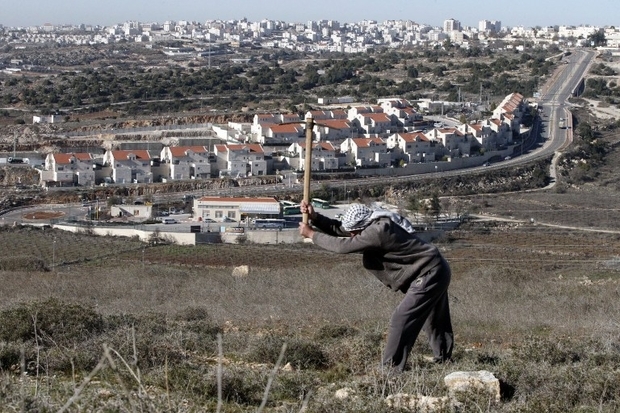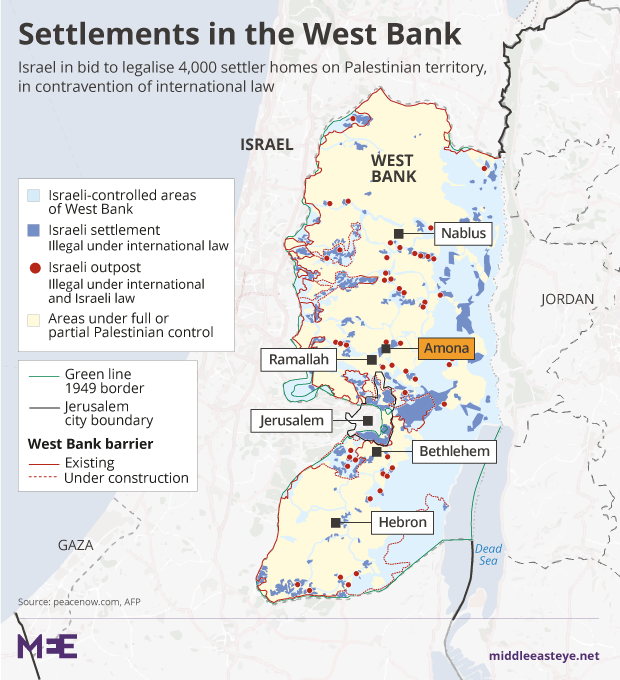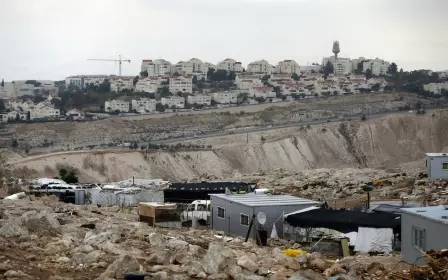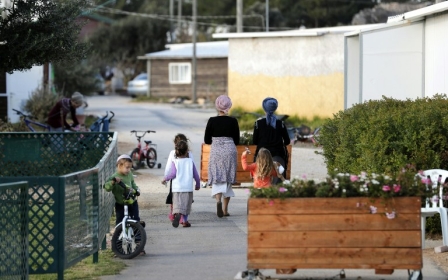The Israeli settlement project is a war crime

This week saw a new round of construction approvals by the Israeli government for settlement housing units, the majority of which are for colonies "deep" in the occupied West Bank.
The settlement homes were advanced by a committee of the so-called Civil Administration, part of the defence ministry, which forms a key part of the bureaucratic process for advancing settlement construction in the West Bank (East Jerusalem, illegally annexed by Israel, is treated differently).
ICC: A strategic threat
As is often the case, the headline figures for settlement construction approvals published by Defence Minister Avigdor Lieberman were disputed, with Israeli daily Haaretz reporting that the tally included "hundreds of housing units that have already been approved and are merely going on the market".
Arguments over whether such announcements involve "recycled" numbers are used by some to downplay their significance. In fact, the multi-stage planning process is an important reminder that the settlements are a state-run enterprise – with all that means when it comes to accountability.
Recently, a senior Knesset committee was reportedly warned, as part of a secret briefing, that 2018 could see the International Criminal Court (ICC) move from the preliminary examination phase into formal investigations of the 2014 Gaza war and West Bank settlements.
While much of the analysis about the ICC's examination of potential war crimes in the state of Palestine focused on atrocities committed in the Gaza in the 2014 war, it is the settlement enterprise in the West Bank and East Jerusalem that may well be Israel's undoing
When, or if, that happens, it will put the focus squarely on those Israeli state bodies and officials responsible for the settlement enterprise. No wonder the ICC is seen as a strategic threat.
In the latest update published last month, the ICC's Office of the Prosecutor (OTP) made clear that with respect to the situation in the West Bank and East Jerusalem, it has "focused its analysis on settlement-related activities", a category that includes the "displacement of Palestinian residents".
The document noted how "the Israeli authorities have allegedly been involved in the settlement of civilians onto the territory of the West Bank, including East Jerusalem, and the forced removal of Palestinians from their homes in the West Bank and East Jerusalem".
The "allegedly", of course, is part of the legal protocol. No one disputes these activities have been taking place – indeed, the Israeli government boasts about it.
The settlement enterprise
The OTP went on to note various forms of settlement-related activities, including land confiscation, the "planning and authorisation of settlement expansions", construction of "residential units and related infrastructures", and retroactive authorisation of outposts.
Other activities included "public subsidies, incentives and funding specifically allocated to settlers and settlements' local authorities to encourage migration to the settlements and boost their economic development". In other words, systematic, across-the-board, state-level involvement.
Thus, while much of the analysis about the ICC's examination of potential war crimes in the state of Palestine has focused on atrocities committed in the Gaza Strip in summer 2014, it is the settlement enterprise in the West Bank and East Jerusalem that may well be Israel's undoing.
As Human Rights Watch noted, when Palestine formally joined the ICC in 2015, the Rome Statute "classifies as a war crime an occupying power's transfer of its own civilians 'directly or indirectly' into territory it occupies".
It was the inclusion of this article that meant Israel "decided not to ratify the statute or become a member of the ICC". Ahead of Palestine joining the ICC, Israeli legal expert Aeyal Gross observed how Israel would not have a leg to stand on if and when the court considered the settlement enterprise.
It is vital that the Israeli government and complicit institutions face the consequences for a flagrantly, unashamedly criminal policy
"Since the establishment of the settlements was based on cabinet decisions and with Israeli government funding, it would be difficult to argue that the policy has not involved a transfer of population by the state," he wrote.
Additionally, "a finding that the court does not have jurisdiction if the relevant state has investigated a matter itself would also not be relevant here inasmuch as it involves government policy".
Finally, the "scope and duration of the settlement enterprise, along with its concomitant deprivation of the Palestinian right to self-determination" would likely be seen as meeting “the requirement that the court deal only with particularly grave matters", Gross explained.
A war crime
Putting aside the question of the ICC for a moment, there is an additional point to be made with respect to Israeli violations and accountability.
Proposals to label, or even ban the import of, goods produced in Israeli settlements in the occupied Palestinian territory are now very much part of mainstream political discussion in the UK and Europe. This, of course, is a positive development.
There is, however, a key flaw with a rigid, 'settlements-only' boycott (as opposed to a strategic, settlements-focused campaign). Since it is the Israeli government that is primarily responsible for the settlements, they should be the address for accountability and sanction – in addition, of course, to complicit entities and institutions like Israeli banks.
When, for example, a clothes or shoe manufacturer is found to be using sweatshop labour, no one proposes boycotting only the products that came from those specific factories; rather, the company responsible for the practice is held responsible and, when necessary, targeted for boycott.
The Israeli settlement project is a war crime, and at the core of an inherently discriminatory regime. It is not an issue to be "dealt with" whenever there is a comprehensive political agreement.
As we wait – possibly for some time – for the ICC to take action, it is vital that the Israeli government and complicit institutions face the consequences for a flagrantly, unashamedly criminal policy.
- Ben White is the author of Israeli Apartheid: A Beginner’s Guide and Palestinians in Israel: Segregation, Discrimination and Democracy. He is a writer for Middle East Monitor and his articles have been published by Al Jazeera, al-Araby, Huffington Post, the Electronic Intifada, the Guardian's Comment is Free and more.
The views expressed in this article belong to the author and do not necessarily reflect the editorial policy of Middle East Eye.
Photo: The settlements are a state-run enterprise (AFP)
New MEE newsletter: Jerusalem Dispatch
Sign up to get the latest insights and analysis on Israel-Palestine, alongside Turkey Unpacked and other MEE newsletters
Middle East Eye delivers independent and unrivalled coverage and analysis of the Middle East, North Africa and beyond. To learn more about republishing this content and the associated fees, please fill out this form. More about MEE can be found here.






